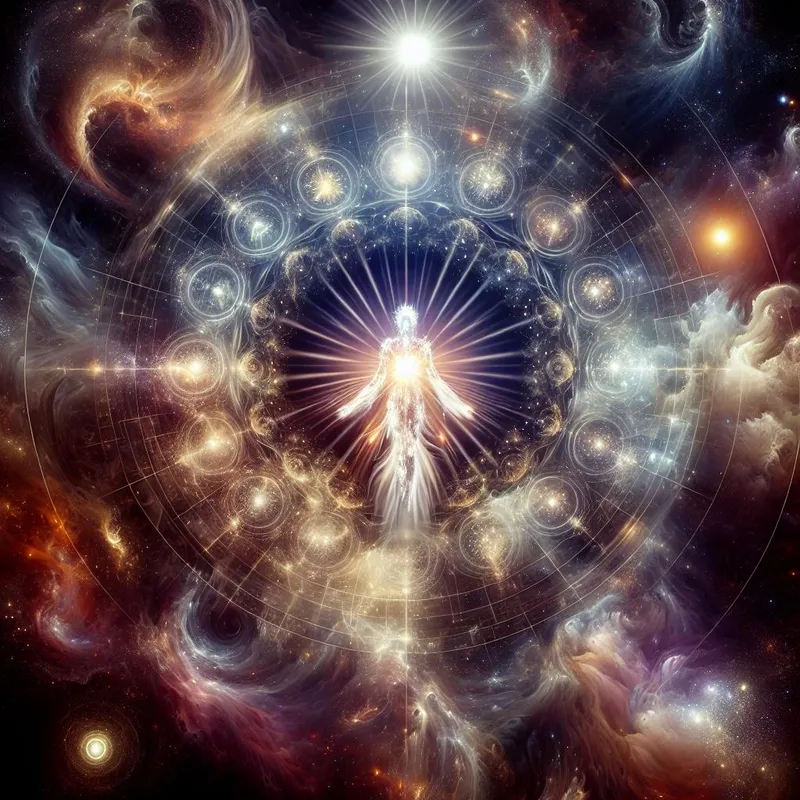
Does God Truly Possess Free Will? Exploring Divine Autonomy in Christianity
Posted on 19 August 2024
Does God Have Free Will?
To understand whether God has free will, we first need to define what we mean by "free will." For the purpose of this discussion, we will define free will as "the capacity of a conscious mind to make decisions and choices without any external constraints or coercion."
Based on this definition, we can say that God certainly possesses free will. God has a mind, is conscious, and has the capacity to make decisions and choices. He does not answer to any authority, is not limited by any external constraints, and cannot be coerced.
God created human beings with a form of free will as well. It is part of what distinguishes us from rocks and animals. However, the volition we possess is of a lesser sort than God's. Unlike humans, God has completely free will in the sense that He is not limited by anything apart from Himself.
Limited Free Will for Humans
Human beings have a certain aspect of decision-making that is unconstrained by natural laws. Many events in the world are determined by natural laws, such as objects falling due to gravity or animals following their instincts. However, our choices in matters like what shoes to wear or what breakfast to order are not governed by these natural laws.
While humans have a limited autonomy within the natural world, there are always limitations on our choices. We cannot choose to do things that are physically impossible, like flapping our arms and flying to the moon. Therefore, human beings have a form of free will that is constrained by external factors.
God's Unconstrained Free Will
In contrast to humans, God's free will is unconstrained in every aspect. The natural world operates subsidiary to His realm. He is not bound by natural laws; in fact, He established those laws and is sovereign over them. God could have created the universe in any number of ways, but the way it exists is due to His choice.
Even the act of creation itself was the result of God's free will. His choice to create was not influenced by any necessity or obligation. God's volition is absolute; His actions are neither deterministically constrained nor controlled by someone else.
God's Intrinsic Nature and Limitations
While God has complete free will, there are certain things that He is incapable of doing because of His perfect and holy nature. For example, Titus 1:2 states that God "cannot lie." This limitation does not suggest any external control but rather identifies an intrinsic property of God's own character. God cannot be unfaithful to Himself, break His Word, or be less than perfect.
Additionally, there are certain things that God is incapable of doing because of the very nature of reality. For instance, He cannot make a triangular square. These statements reflect the fact that God does not deal in absurdities or fallacies but operates within the bounds of reality that He established.
God's inability to lie or sin or engage in illogical actions does not diminish His freedom in any way. Instead, it is a result of His own intrinsic nature. External influences have no hold on Him.
Why This Matters
Understanding whether God has free will has important implications for our understanding of His nature and sovereignty. Recognizing that God possesses free will helps us grasp His absolute authority and control over all things. It highlights the fact that He is not subject to external constraints or limitations.
Furthermore, acknowledging our own limited free will humbles us before God and reminds us of our dependence on Him. It reinforces the truth that we are creatures created by God and subject to His authority.
Think About It
Reflect on the concept of free will as defined in this article. How does this definition align with your understanding of free will?
Consider the limitations on human free will discussed in this article. How do these limitations affect your perspective on the choices you make?
What does it mean for God to have complete free will? How does this understanding impact your view of God's sovereignty and authority?
Reflect on the idea that God's inability to lie or sin is a result of His perfect and holy nature. How does this reinforce your trust in His character?
How can a deeper understanding of God's free will and our limited free will impact how we approach decision-making and submit to God's authority in our lives?
